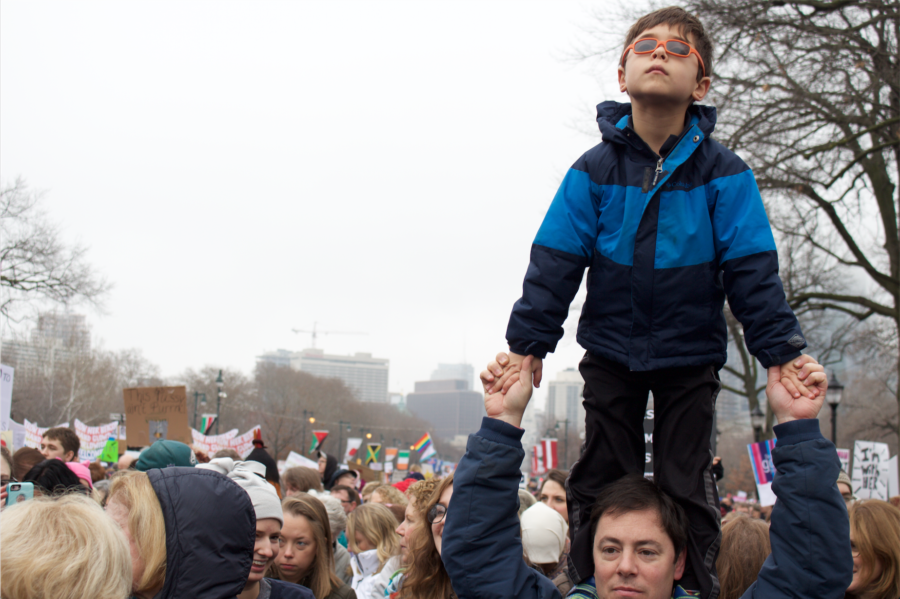By Matthew Soderberg, Opinion Editor
In two days, I saw two Americas.
I was on the national mall in Washington, D.C. when Donald Trump became the 45th president of the United States. As it began to rain, I huddled in a crowd of people who saw that day as their political salvation. People from Georgia to Texas to Maine filled the mall as we watched the oath of office on a jumbo screen, each one of us anticipating some intangible but monumental change. As I crossed security checkpoints, photographed the crowd, and talked to Trump supporters, I noticed how many young people were around me. People my age wearing Make America Great Again hats, sporting American flag gear, and hollering in reverence when Donald Trump appeared.
The next day, among thousands of women marching down the Benjamin Franklin parkway in Philadelphia, I noticed the same thing. Plentiful among the sign-bearers and drum circles were young people- children and teenagers and college students. I used to believe in the old adage that kids don’t care about politics, but after last week, I don’t think it holds up.
Even scrolling through Facebook or Instagram, it’s a ridiculous claim to make that high schoolers don’t care about politics. We do care. Many of us don’t vote, but we’re a powerful force of online polarization, pushing out Breitbart or Huffington post articles with damning captions. We care a lot. Political fervor peaks around events like an election or an inauguration, but that passion remains year round. And as kids, we have a unique opportunity to channel it peacefully: start talking to each other.
We’ve only been around for about 20 years now, not nearly enough time to become jaded and cynical about the political system. We have the luxury of our lives ahead of us, so before we set in stone every belief we hold, taken from our parents or a website, we should really just start to chat. Before last week, I could count on one hand how many real, genuine conversations I’d had with a Donald Trump supporter. (Spoiler: I am a dirty liberal.) I’ve talked so little with Trump supporters, in fact, that I was able to cast them all aside after the election as bigots. In conversations with my fellow liberal students, every time a Trump supporter is brought up, it’s not uncommon for them to be referred to as a jerk or something-worse-and-less-printable. It’s this second hand dismissal that I’m coming to regret.
And it’s happened in the other direction, too. I’ve had someone who I’d never met or heard of post about “ruining my life” because of my political views. I reiterate: I had never met this person. I’ve been called names by someone because of politics, and I’d never actually discussed anything remotely political with them.
I’m as much a part of this problem as everybody, but I think witnessing the inauguration and women’s march firsthand gave me a unique perspective. It’s made me reflect on the way I think and talk about people I oppose politically. I don’t think real conversation is going to convert me into a Trump supporter, but I think it’s the first step to finding common ground. The beauty of it is that we’re kids. We have the luxury to explore our views and others’ views, to challenge them and to talk about them, and to universally detest midterms together.
Make the effort to find that conservative or that liberal whose views you’ve dismissed or written off. There’s no conflict between holding firmly to your beliefs and considering the viewpoints of people with different ones. Take this unique opportunity we get as young people to have that conversation. Often, those two Americas are standing right next to each other.
Matthew Soderberg can be reached at [email protected].





















































































